As remote-learning approaches, TAF develops courses for students, educators, and families to improve digital literacy.
TAF’s Teacher Scientist Partnership (TSP) Program is launching two new courses to address digital literacy and computer skills for students, educators, and potentially families at our STEMbyTAF partner schools. These courses will support a positive remote learning experience.
For almost six months, TAF has witnessed snafus across the board as education turned virtual. The idea that children are technology wizards isn’t necessarily the case when it comes to computer fundamentals, so while students have mastered curating TikTok’s, some are still struggling with essential computer functions like copying and pasting. Teachers are also working to adapt quickly. Traditionally, not many professional development workshops are centered around technology, so the immediate need to incorporate new educational technology into teaching presents a new learning curve. Some are winning, and some are barely holding on. Now, parents are also part of the equation, needing to coach their students through connection issues, computer shortcuts, and more.
Michelle Oliver, TAF TSP Program Manager, shared the challenges during the TAF summer Jumpstart program for incoming 6th-graders this summer. “I was trying to teach coding for TAF’s summer Jumpstart program but found that the students didn’t have the essential literacy skills to participate,” she said. “We had to take a step back to teach them how to perform keyboard shortcuts, navigate between different tabs, create documents, file items — a lot of things. ”
Oliver says she was shocked that the students weren’t able to complete basic tasks on the computer. “In this digital age, I assumed the kids knew these essential skills but was pretty shocked that they didn’t. That’s when I talked to the Jumpstart teachers to ask if I could go over the basics. When thinking about the fall programs, I knew digital literacy could be a massive problem and didn’t want students and teachers to run into the same problem and knew it could be a massive problem.”
The idea that children are technology wizards isn’t necessarily the case when it comes to computer fundamentals, so while students have mastered curating TikTok’s, some are still struggling with essential computer functions like copying and pasting.
TAF’s Digital Literacy Course, designed for 6th and 7th-grade students, will focus on computers, internet, and Microsoft Office Essentials to provide them with “tools they need to thrive within virtual learning,” as described by the course overview. Some of the learning targets include Outlook email, basic file commands, cross-communicating through online platforms, keyboard shortcuts, and Microsoft suite basics mastery.
For educators and 8th through 11th-grade students, the Microsoft Essentials Course will “cover the essentials of Word, Excel, PowerPoint, and the Outlook email platform.” Once students learn vital skills like using Word and PowerPoint templates, formatting within Excel, integrations, and calendaring features, they will complete a mini-project using their new skills within each program. For educators, Oliver hopes to polish their skills so they can also be a resource to students.
“This way it can take away some of the nitty-gritty of the fundamentals so teachers can focus on helping students learn new concepts.”
Courses will occur during class within the first month of school at both TAF@Saghalie and Washington Middle School, most likely after teachers and students have had at least a week to adapt to the virtual learning environment. TAF is also working to extend these courses to families, although this effort will depend on strong collaboration with STEMbyTAF class teachers. “We are committed to ensuring families also know how to use the same tools and resources their students are learning, so we’re seeing how we can partner with the schools to provide this service.”
As an organization that serves communities who have been most impacted by the digital divide, we are committed to ensuring we can support a successful transition into remote learning. To do this, students, families, and educators must have the necessary training to participate in this new way of delivering education.
Learn more about how TAF is supporting student learning.




